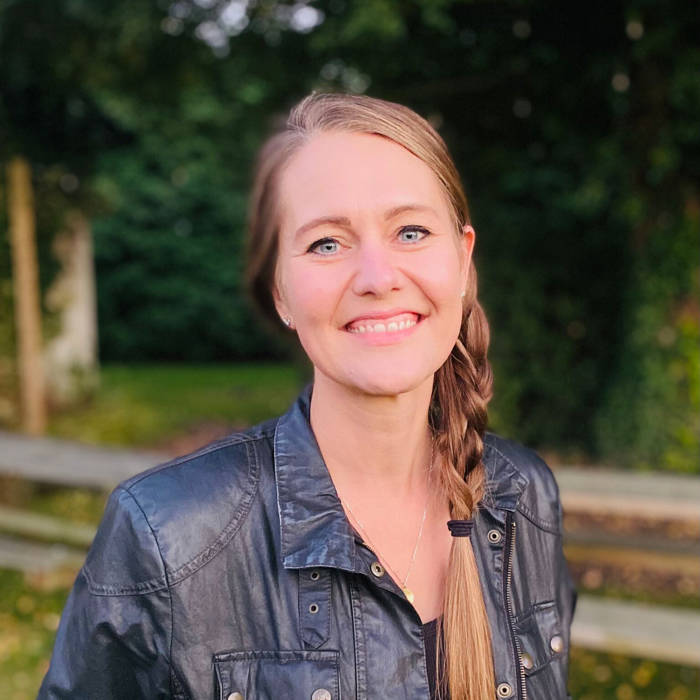Optimising Voice Quality through Nasal Hydration. What are the Implications for the Voice Community?
Tuesday 20th May 2025, 12:00 PM - 1:00 PM (London Time)
Vocal folds vibrate at extremely high frequencies. In males, the fundamental frequency (F0) averages around 125 Hz, and in females, around 250 Hz—equivalent to approximately 7,500 and 15,000 revolutions per minute (RPM), respectively. This RPM greatly exceeds, for example, the centrifuge of a washing machine spinning at 1400 RPM, or a car engine in acceleration, going between 3500 and 4000 RPM. That is the reason for which high-speed vibration causes significant friction on the tissues of the vocal folds, and if the mucosal layers are not in optimal condition, this can result in phonotrauma and vocal pathologies.
Thereby, the Vocal folds need a high degree of humidity to be able to vibrate at their normal high frequency. Hydration makes the tissue more flexible. The moisture of the tissue is one of the first factors that is lost when there is a pathology or when an unusual overload is suffered. Furthermore, hydration is one of the most effective measures to recovering function in emergency situations. For instance, voice professionals have to deal with stress, anxiety, fatigue, and changes in the environmental temperature. They endure dryness of the performance space, because of the air conditioning or the heating. All these factors affect the voice and can make performance more difficult.
Drinking water is excellent for the hydration of the whole body but it hydrates the vocal folds slowly. The ideal and fastest way to moisturize the vocal folds is directly through the respiratory system.
Researchers have proposed the use of nebulisers to superficially hydrate the vocal folds and boost vocal function (Vermeulen et al. 2021). In addition, we proposed another method of superficial hydration: nasal hydration using a damp gauze (Borragán et al., 2021) among other techniques, and we observe hydration effectivity.
This session will explore the different methods of hydration, and we will present our research findings and explore the implications for the voice community.
🏷️ Price £20 (UK VAT inclusive)
🎥 Recording automatically sent to all who book (even if you cannot attend live)
▶️ Rewatch as many times as you like
📜 Certificate of attendance available
María Borragán Salcines
María works in Centro de Foniatría y Logopedia (CFL) and teaches at University of Gimbernat-Cantabria, Santander (Spain). She is an expert on the PROEL method and in neuropathology.
Carles Expósito Rovira
Carles Expósito Rovira, PT, PhD and SLP student. He works in Fisio Taddeo, Palma (Spain) and Centro de Foniatría y Logopedia (CFL), Santander (Spain), and is an expert on the PROEL method.

Attend this course for as little as £22 as part of the Voice Professional Training CPD Award Scheme.
Learn MoreSorry, this is an archived short course...
We have plenty of upcoming short courses coming soon. See details of some of them below or look at the full list of short courses.

Monday 7th July 2025
2:00 PM - 4:00 PM
Tuesday 8th July 2025
2:00 PM - 4:00 PM
Wednesday 9th July 2025
2:00 PM - 4:00 PM
Friday 11th July 2025
2:00 PM - 4:00 PM
Monday 14th July 2025
2:00 PM - 4:00 PM
Tuesday 15th July 2025
2:00 PM - 4:00 PM
Wednesday 16th July 2025
2:00 PM - 4:00 PM
Friday 18th July 2025
2:00 PM - 4:00 PM
(London Time)
Introduction to statistics and working with quantitative data for Voice Professionals: 8-Session Online Bootcamp

Dr David Cane
This certificated statistics course is ideal for individuals interested in laying a solid foundation in quantitative research methods. By focusing on essential statistical principles, you will be equipped with the tools to understand and apply quantitative research techniques effectively. Statistics is a crucial component of quantitative research; mastering it will enable you to grasp quantitative methods more confidently and precisely.


Tuesday 8th July 2025
12:00 PM - 2:00 PM
(London Time)
Oxygen Advantage for Vocal Educators • Empowering Vocalists Through Breath

Kate Cubley
Are you a singing teacher or trainee voice educator eager to expand your toolkit? Join Kate Cubley at Voice Study Centre for a dynamic 2-hour lecture exploring the role of functional breathing in supporting vocal performance, vocal health, and resilience—for both you and your students. This engaging session introduces the Oxygen Advantage® method: a science-backed approach to breathing that can transform how you teach, coach, and care for the voice.


Wednesday 9th July 2025
2:00 PM - 4:00 PM
(London Time)
Accents in Musical Theatre Singing!

Colton Weiss
Colton Weiss (he/they) is a professional dialect coach, actor, and lecturer (Ohio State Univ.) based out of Columbus, Ohio. With the continued popularity and development of productions that call for more demanding voice, speech, and accent work, dialect coaches, music directors, and actors must collaborate across jobs. Inspired from the text, Voice and Speech for Musical Theatre by Chris Palmer, and ongoing production experience, this presentation by Colton explores the intersections of accent work, and the musical skills needed for actors to perform in Musical Theatre.

